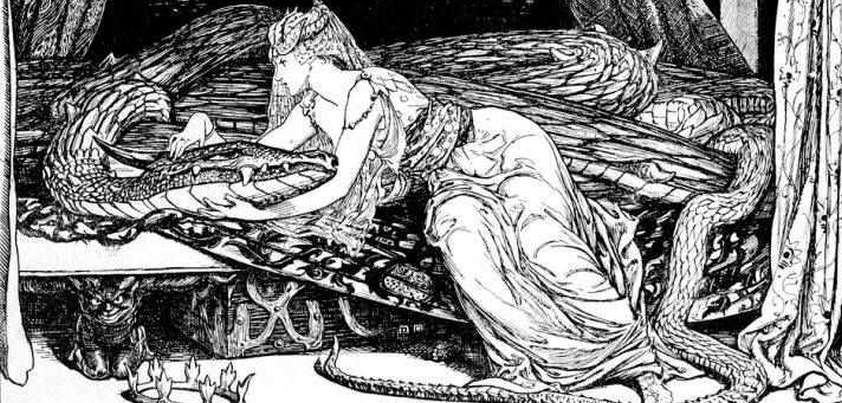 In this Serbian folktale, a young girl stops her rich but cruel father from setting his dogs on three old men who come begging to his door. The old men are not really beggars, but fairies. They foretell that a baby boy in a nearby village will one day own all the rich man’s money and land. The rich man learns this and tries several times to kill the boy. However, he boy survives and the fairies’ prophesy comes true. As a final punishment, the rich man must work forever in a job that is much worse than begging.
In this Serbian folktale, a young girl stops her rich but cruel father from setting his dogs on three old men who come begging to his door. The old men are not really beggars, but fairies. They foretell that a baby boy in a nearby village will one day own all the rich man’s money and land. The rich man learns this and tries several times to kill the boy. However, he boy survives and the fairies’ prophesy comes true. As a final punishment, the rich man must work forever in a job that is much worse than begging.
This folktale is of the self-fulfilling prophesy or “you can’t change fate” variety. Some time ago we featured the English folktale The Fish and the Ring, which has a similar theme. These kind of stories range throughout literature, from the story of Oedipus (the mythical Greek king who fulfilled a prophecy that he would end up killing his father and marrying his mother) to the Harry Potter character Voldemort (who, in reacting to a prophecy that a boy born at a certain time will lead to his downfall, brought about conditions that made it come true).
Our source for the story was The Violet Fairy Book, one of a series of twelve collections of folk and fairy tales for children edited by Andrew Lang. This is the seventh book in the series, and was first published in 1901. Lang states his source as “from the Serbian”. This almost certainly refers to a version of the story Wasilii the Unlucky from Russian Fairy Tales, an eight-book collection of over 600 stories from the great Russian folktale collector Alexander Afanasyev.
Three Wonderful Beggars Original Text / PDF / Audio (2,750 words)